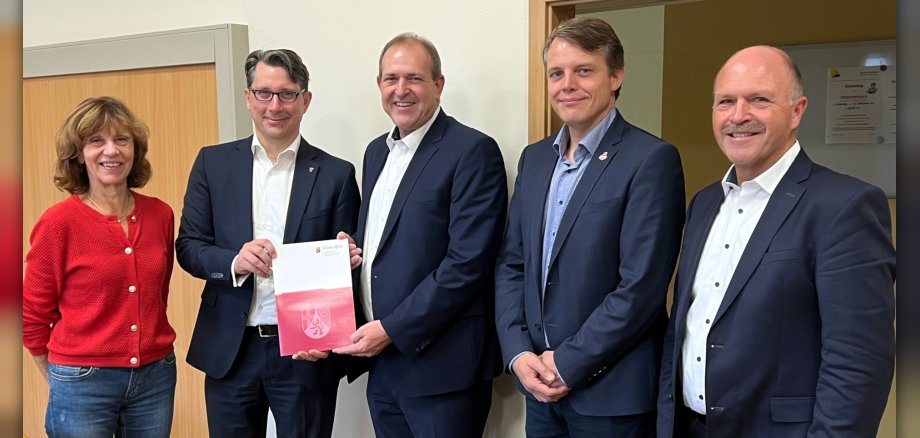"The heating sector is one of the biggest sources of CO2 emissions in Germany. In the face of climate change and its consequences, such as heat and drought, heavy rainfall and flooding, we urgently need more climate-friendly heating systems. Mini local heating networks are a great approach here. They make it possible to tailor climate-friendly heating systems precisely to local conditions. The impact of mini local heating networks is therefore not small at all, but a decisive contribution to a successful heating transition," said State Secretary for the Environment and Climate Protection Michael Hauer in Idar-Oberstein.
He handed over a funding notification in the amount of 101,893.65 euros for a mini local heating network for the Weierbach daycare center. The funding comes from the "Future-proof energy infrastructure" funding program, which aims to promote a sustainable and environmentally friendly energy supply. The Ministry of Climate Protection is already supporting the local heating network at the Weierbach daycare center with over 350,000 euros through the Municipal Investment Program for Climate Protection and Innovation (KIPKI). The investment costs amount to just under 510,000 euros. This leaves a municipal contribution of a good 56,000 euros.
The mini local heating network at the Weierbach daycare center in Idar-Oberstein will supply the daycare center building and the crèche building with heat based on wood pellets in future. The daycare center will save over 35,500 kilowatt hours of heating energy and up to 107 tons of CO2 annually with the local heating network. The new central heat generation system will be housed in an external, two-storey container, which will accommodate both the boiler room and the storage area for the wood pellets. The local heating network will be set up from there. It is also possible to connect a municipal multi-purpose hall to the local heating network in the future.
Frank Frühauf, Lord Mayor of the city of Idar-Oberstein, said: "I am delighted that we have received the promise of funding from the 'Future-proof energy infrastructure - ZEIS' program. Together with the KIPKI funding already approved by the state and this additional funding, we can now implement a forward-looking project for sustainable energy supply in our city in a timely manner. This is wonderful news for our city. In view of the limited financial scope available to local authorities, such a project would hardly have been possible without the support of the state. We are all the more grateful for this valuable funding, which paves the way for a sustainable future."
"The opportunity to expand the local heating network at the Weierbach daycare center shows how we can gradually succeed in the heating transition. With its local heating network, the Weierbach daycare center will clearly meet the requirements of the Building Energy Act ahead of schedule from 2028. We are happy to support such projects for a climate-friendly and future-proof heat supply," concluded Michael Hauer.
